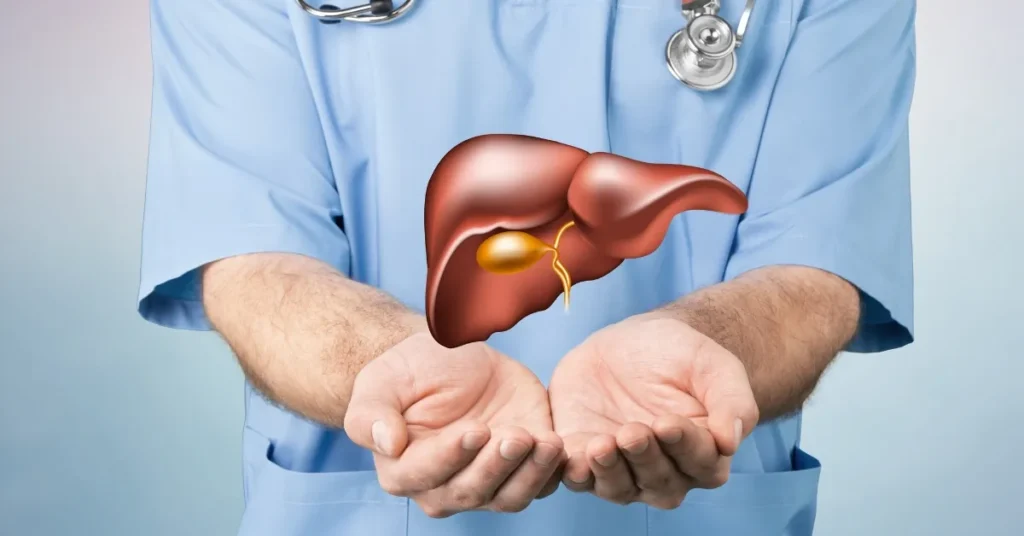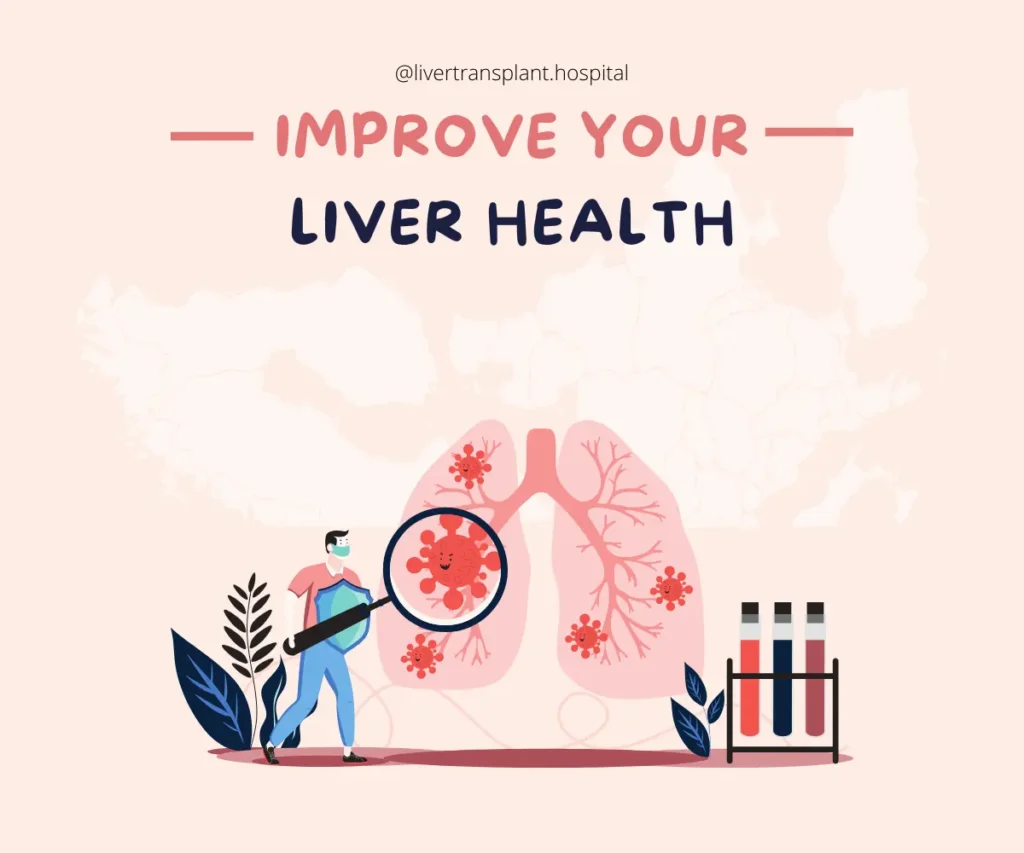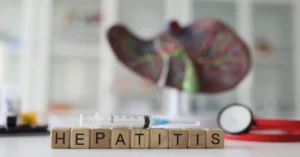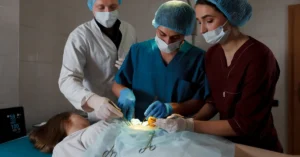Liver transplant is a life-saving procedure for individuals suffering from severe liver diseases. This complex surgery involves replacing a diseased liver with a healthy one from a donor. The journey towards a liver transplant can be daunting, but understanding the process, benefits, and risks can help patients make informed decisions. In this blog post, we will explore liver transplants, focusing on liver health, causes of liver failure, transplant criteria, and more. Let’s delve into the world of liver transplants and see how this procedure can transform lives.
What is Liver Transplant ?
A liver transplant is a surgical procedure where a diseased or failing liver is replaced with a healthy liver from a donor. This complex operation is often the last resort for patients with end-stage liver disease or acute liver failure when other treatments have failed to improve their condition.
The liver, a vital organ located in the upper right abdomen, performs essential functions such as detoxifying the blood, producing proteins and enzymes, aiding in digestion, and storing vitamins and minerals. Without a functioning liver, a person cannot survive.
There are two primary sources for donor livers:
- Deceased Donor Transplants: This is the most common type, where the liver comes from a person who has recently died. These donors are typically brain-dead but kept on life support until the organs can be harvested.
- Living Donor Transplants: In this case, a healthy person donates a portion of their liver, usually to a relative or friend. The liver is unique in its ability to regenerate, allowing both the donor and recipient to eventually have fully functional livers.
The decision to undergo a liver transplant is based on various factors, including the severity of liver disease, the patient’s overall health, and the availability of a suitable donor. Here are key points to consider about liver transplants:
- High Success Rates: Advances in medical technology and surgical techniques have significantly improved liver transplant success rates.
- Life-Saving Procedure: For many patients with end-stage liver disease, a liver transplant is the only option for survival.
- Complex Evaluation Process: Patients undergo a rigorous evaluation process to determine their suitability for a transplant.
- Lifelong Commitment: Post-transplant, patients must adhere to a strict regimen of immunosuppressant medications to prevent rejection.
- Quality of Life: Successful liver transplants can dramatically improve a patient’s quality of life, allowing them to return to normal activities.
- Availability of Donors: The availability of donor livers, especially from living donors, plays a crucial role in the timing and success of the transplant.
Understanding these aspects is vital for anyone considering or preparing for a liver transplant.
About Your Liver Health
The liver is one of the most vital organs in your body, playing a key role in maintaining overall health. To ensure your liver stays healthy, it’s important to understand its functions and the steps you can take to protect it. Here’s a comprehensive look at liver health, incorporating key factors and preventive measures.
A liver transplant might be necessary when liver health deteriorates significantly, leading to liver failure. However, maintaining liver health through lifestyle choices and regular check-ups can prevent many liver diseases. Here are six crucial aspects of liver health:
- Detoxification: The liver detoxifies harmful substances from the blood, breaking them down into harmless byproducts that are then excreted from the body. This function is crucial for preventing the build-up of toxins that can lead to severe health issues.
- Bile Production: The liver produces bile, a digestive fluid essential for breaking down fats in the small intestine during digestion. Bile production helps in the absorption of fat-soluble vitamins and nutrients.
- Metabolic Regulation: The liver plays a significant role in metabolizing carbohydrates, proteins, and fats. It converts excess glucose into glycogen for storage and regulates blood sugar levels, ensuring a steady supply of energy.
- Storage of Nutrients: The liver stores essential vitamins and minerals such as vitamin A, D, E, K, and B12, as well as iron and copper. These nutrients are released into the bloodstream as needed, supporting various bodily functions.
- Protein Synthesis: The liver synthesizes vital proteins, including albumin, which maintains fluid balance, and clotting factors that prevent excessive bleeding.
- Immune Function: The liver contains a large number of immune cells that detect and destroy pathogens, playing a crucial role in the body’s defense system.
By focusing on these aspects, you can take proactive steps to maintain liver health and potentially avoid the need for a liver transplant in the future. Regular exercise, a balanced diet, avoiding excessive alcohol consumption, and regular medical check-ups are essential for keeping your liver in optimal condition. Remember, a healthy liver is fundamental to a healthy life.
What is Liver Transplant Surgery?
Liver transplant surgery is a complex and highly specialized medical procedure designed to replace a failing or diseased liver with a healthy liver from a donor. This surgery is typically considered for patients with severe liver conditions such as cirrhosis, liver cancer, or acute liver failure.
The liver is a vital organ responsible for various functions, including detoxification of harmful substances, production of bile for digestion, and regulation of blood clotting. When the liver fails to perform these functions due to disease or damage, a liver transplant becomes a necessary intervention.
Causes for Liver Failure
Liver failure can be caused by a variety of conditions, many of which can be severe enough to necessitate a liver transplant. Understanding these causes is crucial for early detection and management. Here are some of the primary causes for liver failure:
- Chronic Hepatitis: Chronic infections with hepatitis B and C viruses can lead to ongoing liver inflammation and damage. Over time, this can result in cirrhosis and liver failure, making a liver transplant in India or other locations a necessary treatment option.
- Cirrhosis: Cirrhosis is the result of long-term liver damage, often due to chronic alcohol abuse, hepatitis, or fatty liver disease. The liver becomes scarred and loses its ability to function properly. For many patients, the only viable treatment is a liver transplant.
- Non-Alcoholic Fatty Liver Disease (NAFLD): This condition, often associated with obesity, diabetes, and metabolic syndrome, involves the buildup of fat in the liver. Over time, NAFLD can progress to non-alcoholic steatohepatitis (NASH), cirrhosis, and eventually liver failure, requiring a liver transplant in Chennai or other specialized centers.
- Genetic Disorders: Certain inherited conditions, such as Wilson’s disease or hemochromatosis, can cause excessive accumulation of copper or iron in the liver, leading to liver damage and failure. Early diagnosis and management are crucial, but in advanced stages, a liver transplant may be necessary.
- Autoimmune Liver Diseases: Conditions like autoimmune hepatitis, primary biliary cholangitis (PBC), and primary sclerosing cholangitis (PSC) involve the immune system attacking the liver, causing inflammation and damage. These diseases can lead to liver failure, often necessitating a liver transplant.
- Acute Liver Failure: Sudden and severe liver failure, often caused by drug toxicity (such as acetaminophen overdose) or viral hepatitis, can rapidly deteriorate liver function. In such critical cases, immediate evaluation for a liver transplant is essential to save the patient’s life.
Recognizing these causes early and seeking appropriate medical care can help manage liver health and potentially delay the need for a liver transplant.
Liver Transplant Criteria
Not everyone with liver disease qualifies for a liver transplant. Specific criteria must be met to ensure that the patient can benefit from the surgery and has a higher chance of success. These criteria include several factors related to the patient’s overall health, liver condition, and lifestyle choices. Here are the key criteria for a liver transplant in India and around the world:
- Severity of Liver Disease: Candidates must have severe liver disease, often classified as end-stage liver disease or acute liver failure. This includes conditions like cirrhosis, chronic hepatitis, and liver cancer. The severity is typically assessed using the MELD (Model for End-Stage Liver Disease) score, which helps determine the urgency of the transplant.
- Overall Health: The patient should be in good enough health to withstand major surgery and the recovery process. This includes evaluating the function of other vital organs such as the heart and lungs. Patients with uncontrolled infections or other significant health issues may not be eligible.
- Absence of Alcohol or Drug Abuse: Patients must demonstrate a period of abstinence from alcohol or illicit drugs. This period is usually six months and is necessary to ensure that the liver disease was not caused by substance abuse and to prevent recurrence post-transplant.
- Psychological Readiness: Candidates must be mentally prepared for the transplant and the significant lifestyle changes that follow. This includes adhering to a strict medication regimen to prevent organ rejection and attending regular follow-up appointments.
- Support System: A strong support system is crucial for post-transplant recovery. This includes family members or friends who can assist with care and transportation to medical appointments.
- Financial Stability: Liver transplants can be costly, and candidates must have the financial means or insurance coverage to manage the surgery and ongoing post-operative care. This includes the cost of immunosuppressive medications, which are essential for preventing organ rejection.
Meeting these liver transplant criteria is crucial for patients seeking a liver transplant in Chennai or other locations, ensuring they are well-prepared for the surgery and subsequent recovery.
Benefits and Risks
When considering a liver transplant, it is essential to weigh the potential benefits against the inherent risks. This understanding helps patients and their families make informed decisions about their health and future. The benefits and risks of liver transplant surgery are significant factors to consider, especially when undergoing a liver transplant in India or other regions known for their medical expertise.
Benefits
- Enhanced Quality of Life: A successful liver transplant can significantly improve the patient’s overall quality of life. Symptoms such as jaundice, fatigue, and fluid retention are often alleviated, allowing patients to resume normal activities.
- Extended Life Expectancy: Many patients experience a considerable extension in life expectancy post-transplant, giving them more time to enjoy life with their loved ones.
- Symptom Relief: The debilitating symptoms associated with liver failure are often relieved after a liver transplant, providing much-needed comfort and functionality.
- Increased Energy Levels: Patients often report a substantial increase in energy levels and a better ability to engage in physical activities.
- Improved Mental Health: The relief from chronic illness can lead to improved mental health, reducing depression and anxiety associated with long-term liver disease.
- Better Nutritional Absorption: With a functioning liver, the body can better absorb and utilize nutrients, improving overall health and well-being.
Risks
- Surgical Complications: As with any major surgery, there are risks of complications such as bleeding, infection, and issues related to anesthesia.
- Organ Rejection: The body may reject the new liver, requiring medical intervention and potentially additional surgeries.
- Immunosuppression Side Effects: Post-transplant, patients must take immunosuppressive medications to prevent rejection, which can increase susceptibility to infections and other health issues.
- Liver Transplant Success Rate Variability: While many transplants are successful, outcomes can vary based on factors like the patient’s overall health, the skill of the surgical team, and post-operative care.
- Financial Costs: The financial burden of a liver transplant can be significant, covering surgery, hospital stays, medications, and follow-up care.
- Lifestyle Adjustments: Post-transplant life requires significant lifestyle adjustments, including regular medical check-ups and adherence to a strict medication regimen.
Considering these benefits and risks is crucial when planning for a liver transplant in Chennai or any other medical center, helping ensure the best possible outcome for the patient.
Types of Donors
When considering a liver transplant, understanding the types of donors available is crucial. The two primary types of donors are deceased donors and living donors. Each type offers distinct advantages and considerations, especially when looking for a liver transplant in India or a liver transplant in Chennai.
Deceased Donor
A liver from a deceased donor comes from someone who has passed away, typically due to an accident or a sudden health condition. Deceased donor liver transplants are common and often involve waiting lists based on compatibility and urgency.
- Availability: Deceased donor livers depend on organ donation rates and availability.
- Wait Time: Patients may experience long waiting periods depending on the urgency of their condition and the availability of a suitable match.
- Matching Process: Compatibility tests are essential to ensure the donor liver matches the recipient’s body to minimize rejection risks.
Living Donor
Living donor liver transplants involve a healthy person donating a portion of their liver. This type of transplant has become increasingly popular due to its benefits, including reduced waiting times and the liver’s remarkable ability to regenerate.
- Reduced Wait Time: Living donor transplants significantly reduce the waiting period, as the surgery can be scheduled once a match is found.
- Regeneration: The donor’s liver and the recipient’s transplanted liver regenerate to their full size, ensuring both individuals maintain liver function.
- Donor Criteria: Living donors must undergo extensive medical evaluations to ensure they are healthy and compatible with the recipient.
Choosing between a deceased donor and a living donor for a liver transplant in India or a liver transplant in Chennai is a significant decision. Both options have their benefits and risks, and the choice depends on individual circumstances, urgency, and available resources. Consulting with medical professionals can provide the necessary guidance to make the best decision for a successful liver transplant.
Liver Transplant Process
The liver transplant process is a meticulously coordinated series of steps that ensures the best possible outcome for the patient. It involves several key stages:
- Evaluation: This initial stage involves a comprehensive medical evaluation to determine if the patient is a suitable candidate for liver transplant surgery. Tests include blood work, imaging studies, and assessments of heart and lung function. Psychological evaluations are also conducted to ensure the patient can cope with the surgery and follow-up care.
- Listing: If deemed eligible, the patient is placed on the transplant waiting list. This list is managed based on medical urgency, blood type compatibility, and other factors. The wait time can vary significantly depending on the availability of suitable donor organs.
- Matching: Finding a compatible donor is crucial. The donor liver must match the recipient’s blood type and be of an appropriate size. Matching also involves considering the urgency of the patient’s condition, with those in critical need receiving priority.
- Surgery: Once a suitable donor liver is identified, the patient is prepared for surgery. The surgical procedure involves the removal of the diseased liver and its replacement with the healthy donor liver. This intricate surgery can last several hours and requires a highly skilled surgical team.
- Post-Surgery Care: After the surgery, the patient is moved to the intensive care unit (ICU) for close monitoring. Recovery includes managing pain, preventing infections, and ensuring the new liver is functioning correctly. Post-surgery care is vital to address any immediate complications and set the stage for long-term recovery.
Understanding the liver transplant process is essential for patients and their families to prepare for the journey ahead and ensure a successful outcome.
Liver Transplant Recovery
Recovery from liver transplant surgery is a critical phase that demands patience, diligence, and adherence to medical advice. The recovery process can be divided into several stages, each with its own set of challenges and milestones.
- Hospital Stay: Post-surgery, patients typically spend 1-2 weeks in the hospital. During this time, medical staff closely monitor the patient’s condition, manage pain, and ensure the new liver is functioning properly. This stage is crucial for early detection of any complications such as infection or rejection.
- Medication: After discharge, patients must take immunosuppressive medications for life. These drugs help prevent the body from rejecting the new liver. Adhering to the prescribed medication regimen is essential to avoid complications.
- Follow-up Care: Regular follow-up appointments are necessary to monitor the patient’s progress. These check-ups often include blood tests, imaging studies, and other assessments to ensure the liver is functioning well and to adjust medications as needed.
- Diet and Lifestyle: Adopting a healthy diet and lifestyle is vital for recovery. Patients are encouraged to eat a balanced diet, avoid alcohol, and engage in light physical activity as recommended by their healthcare team.
- Emotional Support: Recovery isn’t just physical; it’s emotional too. Patients may experience a range of emotions, including relief, anxiety, and even depression. Support from family, friends, and counseling services can be invaluable during this time.
By understanding these aspects of liver transplant recovery, patients can better prepare for the journey ahead and work towards a successful long-term outcome.
Risks and Complications
Liver transplant surgery, while life-saving, comes with its share of risks and complications. It is essential for patients and their families to be aware of these potential issues to manage expectations and prepare for post-operative care effectively.
- Infection: Due to the immunosuppressive medications required to prevent organ rejection, liver transplant recipients are at a higher risk of infections. These infections can range from mild to severe and can occur in various parts of the body, including the lungs, urinary tract, and surgical site.
- Rejection: Despite the use of immunosuppressive drugs, the body may still recognize the new liver as a foreign object and attempt to reject it. Acute rejection can happen within the first few weeks post-surgery, while chronic rejection can occur months or years later. Regular monitoring and prompt medical intervention are crucial to manage rejection.
- Bleeding: Bleeding is a common complication during and after liver transplant surgery. The liver is a highly vascular organ, and the surgical process can disrupt blood vessels, leading to significant blood loss. Patients may require blood transfusions and close monitoring to manage this risk.
- Blood clots: Post-surgery, patients are at risk of developing blood clots in the veins, which can lead to complications such as deep vein thrombosis (DVT) or pulmonary embolism (PE). Preventive measures include the use of blood thinners and encouraging early mobilization.
- Bile duct complications: Issues such as bile leaks or strictures (narrowing of the bile ducts) can arise after liver transplant surgery. These complications may require additional procedures, such as stent placement or surgery, to correct.
Impact on Patients’ Lives
Liver Transplant Surgery profoundly impacts patients’ lives, offering a new lease on life for those suffering from severe liver conditions. This surgery not only alleviates debilitating symptoms but also enhances overall health and daily functioning. Here are six key ways liver transplant surgery benefits patients:
- Symptom Relief: Patients experience significant relief from symptoms such as jaundice, fatigue, and fluid retention. The new liver restores proper function, reducing these distressing issues.
- Extended Life Expectancy: Successful liver transplants can dramatically increase life expectancy, giving patients the chance to enjoy more years with their loved ones and engage in fulfilling activities.
- Enhanced Energy Levels: Post-surgery, many patients report improved energy levels, enabling them to return to work, participate in social activities, and pursue hobbies that were previously impossible due to their condition.
- Improved Nutritional Status: A healthy liver improves the body’s ability to process nutrients, leading to better overall nutrition and strength. This enhancement supports a more active and vibrant lifestyle.
- Reduced Hospitalizations: Liver transplant recipients often experience fewer hospitalizations and medical complications, reducing the physical and emotional burden of frequent medical interventions.
- Mental Health Benefits: The successful outcome of the surgery can alleviate anxiety and depression associated with chronic liver disease. Patients often experience a significant boost in their mental well-being, contributing to a better quality of life.
In summary, Liver Transplant Surgery offers comprehensive benefits, addressing both physical and mental health, thus significantly improving the lives of patients and their families.






